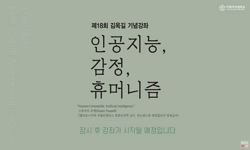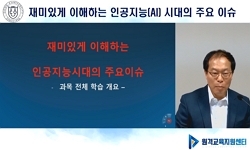There has been a continuous movement to automate fact-checking through artificial intelligence (AI) technology as a countermeasure to the widespread production and rapid dissemination of misinformation, disinformation, and harmful information on the i...
http://chineseinput.net/에서 pinyin(병음)방식으로 중국어를 변환할 수 있습니다.
변환된 중국어를 복사하여 사용하시면 됩니다.
- 中文 을 입력하시려면 zhongwen을 입력하시고 space를누르시면됩니다.
- 北京 을 입력하시려면 beijing을 입력하시고 space를 누르시면 됩니다.
https://www.riss.kr/link?id=A109228369
- 저자
- 발행기관
- 학술지명
- 권호사항
-
발행연도
2024
-
작성언어
Korean
-
주제어
Fact-check ; Artificial Intelligence ; Factuality ; Fake News ; Journalism ; 팩트체크 ; 인공지능 ; 사실성 ; 가짜뉴스 ; 저널리즘
-
KDC
070
-
등재정보
KCI우수등재
-
자료형태
학술저널
- 발행기관 URL
-
수록면
119-157(39쪽)
- 제공처
-
0
상세조회 -
0
다운로드
부가정보
다국어 초록 (Multilingual Abstract)
There has been a continuous movement to automate fact-checking through artificial intelligence (AI) technology as a countermeasure to the widespread production and rapid dissemination of misinformation, disinformation, and harmful information on the internet. However, this approach often appears to be a technology-centric solution with lacking two key perspectives. First, it proposes AI in the fact-checking process without sufficient consideration of the conditions and methods for AI implementation in the fact-checking process. Second, the current approach lacks an understanding of how factuality is negotiated and constructed within fact-checking process performed by AI. This paper addresses these issues by examining how AI, as a ‘technology’ of fact-checking, constructs ‘facts’ through domestic and international AI fact-checking technology cases. This paper explores how the ‘factuality’ constructed by AI fact-checking differs from the ‘factuality’ provided by traditional fact-checking journalism, which has historically shaped social reality by verifying and adding facts. To achieve this, the paper reviews AI fact-checking technologies presented by globally certified fact-checking organizations as of October 2023. The sources come from the International Fact-Checking Network (IFCN) and AI fact-checking technology cases published in an online database created by the Rand Institute in the U.S., aimed at fighting disinformation. Based on the objectives of each technology and how they are set up, this paper categorizes the AI fack-checking technology cases into: 1) detection of claims, 2) evidence extraction and verification of claim truthfulness, and 3) detection and control of information dissemination patterns. This paper then critically examines how each type of technology socially constructs ‘factuality’ compared to the ways in which the traditional journalism approach has defined ‘factuality.’ In sum, AI fact-checking involves the automation of the process through which external ‘objective facts and their requirements are defined in technically sensible ways, and the machine ‘filters’ and ‘matches’ information based on whether it meets these criteria. Ultimately, this process reconstructs the nature of facts within the ‘requirements of facts that the technology can construct. This study emphasizes the need to move beyond the current focus on whether AI technology can be adopted or implemented, and instead calls for a detailed examination of the specific conditions and methods under which AI is deployed within the context of fact-checking. This study reveals, through the analysis of case studies, that the definition of ‘fake news’ becomes highly ambiguous, depending on which aspects of the complex fact-checking process are automated by AI, and that the concept of factuality, traditionally emphasized in journalism, can also be subject to political (re)definition.
동일학술지(권/호) 다른 논문
-
팬데믹 기간 코로나19 관련 허위정보는 어떻게 건강을 위협하는가? : 패널데이터 분석결과를 중심으로
- 한국언론학회
- 장경은(Kyungeun Jang)
- 2024
- KCI우수등재
-
아는 만큼 보인다? : 추천 알고리즘 이용자 태도에 미치는 인지된 지식, 실제 지식, 지식격차 요인의 영향력 탐색
- 한국언론학회
- 이슬기(Slgi (Sage) Lee)
- 2024
- KCI우수등재
-
인공지능 이슈에 대한 뉴스 프레임이 이용자의 정서와 행동 의향에 미치는 영향
- 한국언론학회
- 장미경(Mikyung Chang)
- 2024
- KCI우수등재
-
- 한국언론학회
- 편집부(편집자)
- 2024
- KCI우수등재





 DBpia
DBpia






